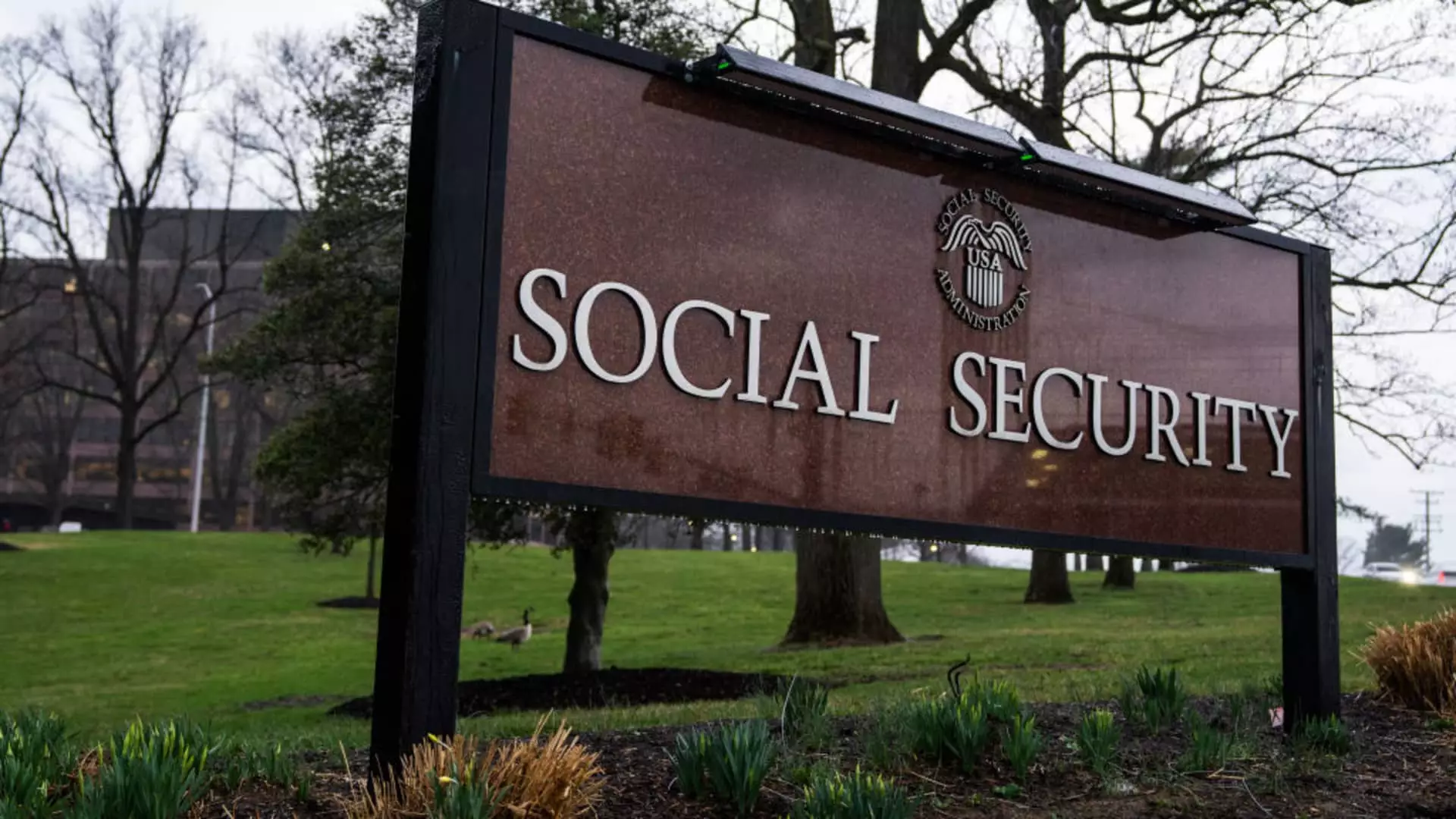In the murky waters of politics and governance, recent developments surrounding the Social Security Administration (SSA) have ignited discussions that reveal not just the dysfunctionality of federal agencies but also the delicate balance between data privacy and the essential services they offer. With a federal judge granting a temporary block to the Department of Government Efficiency (DOGE) from accessing sensitive personal data at the SSA, the stakes could not be higher. The implications of this ruling go beyond mere bureaucratic technicalities; they reflect systemic vulnerabilities that could jeopardize the very lives of millions who rely on Social Security benefits.
The judge’s ruling directly affects the SSA’s ability to perform its duties effectively. Acting Commissioner Lee Dudek has expressed concerns that the broad scope of the court order could interfere significantly with the agency’s service delivery. This situation raises the question: are we allowing bureaucratic hurdles to hinder the timely provision of essential services to those who most desperately need them?
The Human Cost of Bureaucratic Decisions
Dudek’s remarks triggered alarm bells among advocacy groups, emphasizing that, for nearly nine decades, the SSA has delivered checks without fail. Yet here we are, a mere 60 days into the current administration, facing unprecedented chaos. Lee Saunders, president of the American Federation of State, County and Municipal Employees (AFSCME), did not mince words when he criticized the current SSA leadership, claiming they are leading the agency into a crisis. This sentiment is echoed across various factions, indicating that the ramifications of this administrative failure extend far beyond mere policy disagreements—they threaten the very financial stability of America’s vulnerable population.
The narrative constructed around Dudek’s leadership paints a dismal picture of neglect and incompetence. Critics assert that under his management, the SSA has not just faltered in its mission but has actively compromised the security and welfare of citizens. This situation exposes how bureaucratic erosion could potentially lead to back-door cuts in essential benefits, a reality that may affect not just the elderly but also those grappling with disabilities who depend on these lifelines for survival.
DOGE’s Shadowy Operations
One of the most disconcerting aspects of this development is DOGE itself, an organization led by Tesla CEO Elon Musk that operates in a grey area, bypassing traditional governmental oversight mechanisms. The fact that a private individual in the tech industry can have such a powerful influence over a crucial federal agency raises serious ethical questions about governance and accountability. The designation of DOGE as a “special government employee” brings forth all sorts of concerns regarding the mesh of private interest and public duty.
With Musk’s involvement comes a new dimension of scrutiny and skepticism. The infusion of corporate interests into the fabric of Social Security administration lends itself to potential exploitation, particularly regarding sensitive data. If a tech mogul is embroiled in the management of such an agency, can we trust that the inherent vulnerabilities will not be shamelessly exploited for profit or power?
The Political Chess Game
As the situation unfolds, the political back-and-forth exacerbates the turmoil within the SSA. Democrats and Republicans are engaged in a fierce tug-of-war, each accusing the other of playing politics with something as essential as Social Security benefits. House Ways and Means Committee ranking member Richard Neal (D-Mass.) has described the unfolding crisis as a “five-alarm fire,” while Republican counterparts have dismissed these concerns as mere scaremongering.
This clash of ideologies illustrates a broader issue—how the integrity of social welfare programs tends to become a battleground for political posturing rather than a unified effort to serve the public. If leaders from both sides are more focused on advancing their narratives, how will the needs of millions of beneficiaries be prioritized amid this strife? The implications here run deep, suggesting that the elderly and disabled might become collateral damage in this unyielding political warfare.
The Future of Social Security
As the clock ticks and tensions mount, there is a pressing need for clarity and accountability. Will Dudek manage to navigate these troubling waters, or will he further plunge the SSA into chaos? And what of the appointed commissioner, Frank Bisignano, and his upcoming Senate confirmation? These decisions could either rehabilitate a beleaguered agency or further damage its already fragile infrastructure.
In an environment where data privacy collides with the pressing need for social welfare, this impasse provokes serious reflection on governmental competence. It is a sobering reminder that the stakes are exceedingly high when the reliability of social safety nets is at risk. The political maneuvering surrounding this issue may have profound consequences, ensuring that social services remain a topic of fierce debate while the welfare of the most vulnerable hangs perilously in the balance.


Leave a Reply